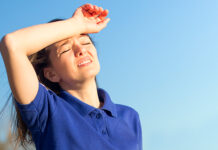Physical activity and exercise is a major contributor to a healthy lifestyle; people are made to use their bodies, and disuse leads to unhealthy living. Unhealthy living may manifest itself in obesity, weakness, lack of endurance, and overall poor health that may foster disease development.
Tips:
- Regular exercise can prevent and reverse age-related decreases in muscle mass and strength, improve balance, flexibility, and endurance, and decrease the risk of falls in the elderly. Regular exercise can help prevent coronary heart disease, stroke, diabetes, obesity, and high blood pressure. Regular, weight-bearing exercise can also help prevent osteoporosis by building bone strength.
- Regular fitness can help chronic arthritis sufferers improve their capacity to perform daily activities such as driving, climbing stairs, and opening jars.
- Regular exercise can help increase self-esteem and self-confidence, decrease stress and anxiety, enhance mood, and improve general mental health.
- Regular exercise can help control body weight and in some people cause loss of fat.
- Thirty minutes of modest exercise (walking is OK) at least 3 to 5 days a week is recommended, but the greatest health benefits come from exercising most days of the week.
- Exercise can be broken up into smaller 10-minute sessions.
- Start slowly and progress gradually to avoid injury or excessive soreness or fatigue. Over time, build up to 30 to 60 minutes of moderate to vigorous exercise every day.
- People are never too old to start exercising. Even frail, elderly individuals (70-90 years of age) can improve their strength and balance with exercise.
- Almost any type of exercise (resistance, water aerobics, walking, swimming, weights, yoga, and many others) is helpful for everybody.
- Children need exercise; play outside of the home is a good beginning.
- Sports for children may provide excellent opportunities for exercise, but care must be taken not to overdo certain exercises (for example, throwing too many pitches in baseball may harm a joint like the elbow or shoulder).
- Exertion during strenuous exercise may make a person tired and sore, but if pain occurs, stop the exercise until the pain source is discovered; the person may need to seek medical help and advice about continuation of such exercise.
Most individuals can begin moderate exercise, such as walking, without a medical examination.
The following people, however, should consult a doctor before beginning more vigorous exercise:
- Men over age 40 or women over age 50
- Individuals with heart or lung disease, asthma, arthritis, or osteoporosis
- Individuals who experience chest pressure or pain with exertion, or who develop fatigue or shortness of breath easily
- Individuals with conditions that increase their risks of developing coronary heart disease, such as high blood pressure, diabetes, cigarette smoking, high blood cholesterol, or having family members who had early onset heart attacks and coronary heart disease
- Individuals who are morbidly obese
Consequences of physical inactivity and lack of exercise:
- Physical inactivity and lack of exercise are associated with heart disease and some cancers.
- Physical inactivity and lack of exercise are associated with type II diabetes mellitus (also known as maturity or adult-onset, non-insulin-dependent diabetes).
- Physical inactivity and lack of exercise contribute to weight gain.
- HLF
The post Physical activity and exercise appeared first on Pattaya One News.
Facebook Comments



































